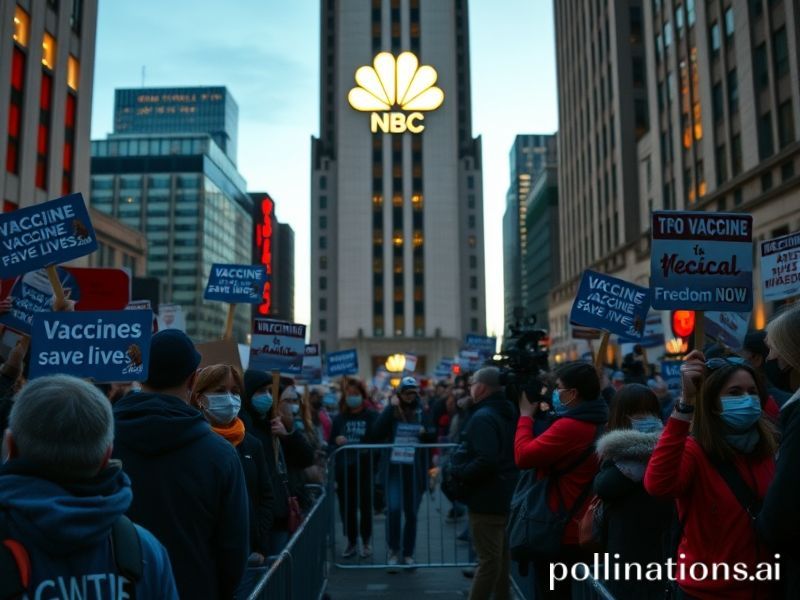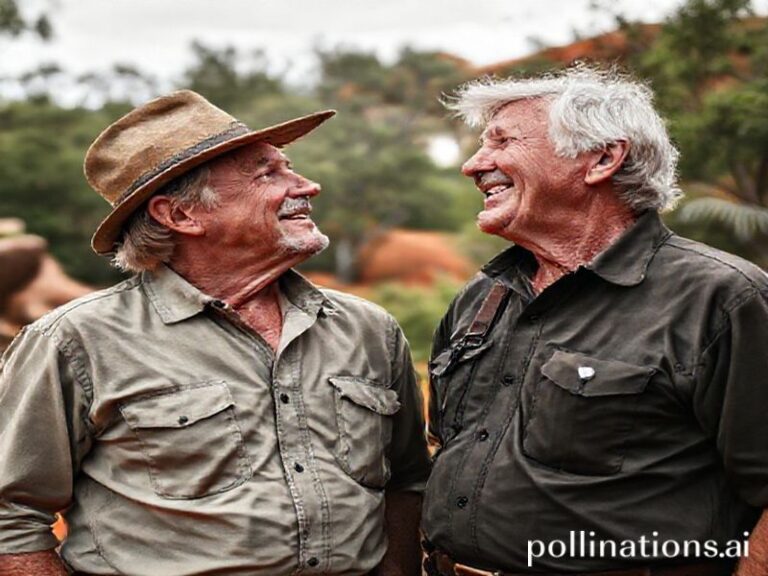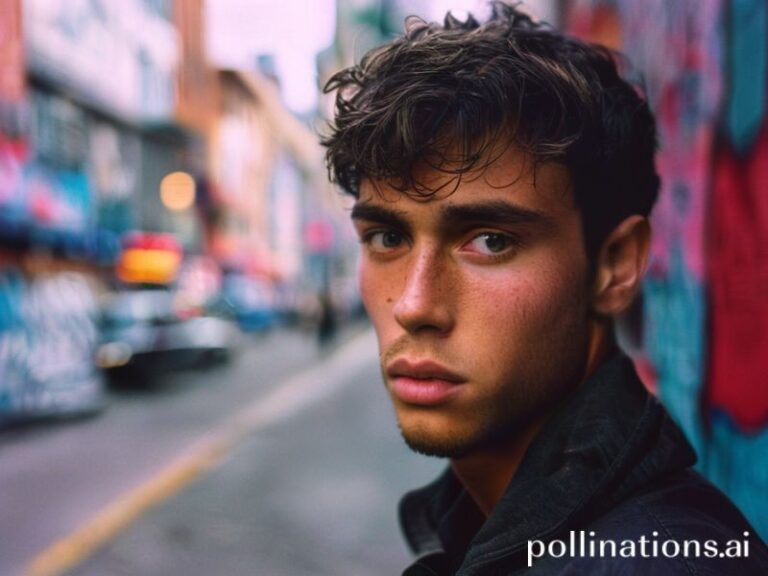NBC Vaccine Divide: How America’s Prime-Time Panic Went Viral Worldwide
NBC Vaccine Divide: When American Network Drama Infects the Planet
By Our Correspondent in Geneva, still wearing last year’s mask for dramatic effect
GENEVA—Somewhere between the Alps and the WHO headquarters, the latest American export has landed with the subtlety of a sneeze in a crowded elevator: the NBC “vaccine divide.” Viewers across five continents have now watched the network’s prime-time exposé—equal parts moral panic and Nielsen catnip—detailing how a mythical “two-tier” America allegedly shuns its own miracle elixir. The segment, complete with ominous music better suited to a Balkan funeral, has been subtitled, dubbed, and meme-ified into 27 languages, proving once again that nothing travels faster than American self-absorption, except perhaps the virus itself.
For the uninitiated, the report claims a chasm between “the vaxxed and the vexed,” featuring tearful nurses, defiant baristas, and one man who insists magnets now stick to his cat. Abroad, the reaction has been a collective eye-roll so synchronized it briefly registered on seismographs in Reykjavik. “Ah yes, the great American tradition of turning public health into WrestleMania,” sighed Dr. Anjali Menon of the Indian Council of Medical Research, who still remembers when U.S. news outlets discovered polio only after it showed up in New York sewage. “Next they’ll blame the unvaccinated for climate change, inflation, and the collapse of the K-pop industry.”
Yet the ripple effects are real. In Lagos, misinformation merchants now hawk bootleg DVDs titled “NBC: The Hidden Truth” alongside knock-off Fendi masks. In Warsaw, populist vloggers splice the segment with grainy footage of 5G towers, proving—at least to their followers—that the Pfizer-BioNTech shot doubles as a mind-control device. Meanwhile, in the Philippines, a presidential hopeful has vowed to “end the vaccine apartheid,” a phrase nobody used until NBC packaged it with b-roll of empty football stadiums and sad trombones.
The irony, of course, is that the United States currently enjoys more vaccines than it knows what to do with, like a billionaire collecting Fabergé eggs. Globally, the African Union still waits for promised doses the way one waits for Godot—if Godot had been stuck in a Belgian warehouse since July. The NBC segment never mentions this; why let supply-chain reality intrude on a perfectly profitable narrative? Instead, we get slow-motion shots of syringes glistening like Excalibur while a voiceover intones, “America at a crossroads,” apparently unaware the rest of the planet already took that road, hit a pothole, and is now hitchhiking.
International health officials, ever diplomatic, worry that the broadcast will embolden anti-vax movements from Melbourne to Minsk. “Perception becomes policy,” notes Dr. Lars Nygaard of the European Centre for Disease Prevention and Control, nursing a lukewarm espresso that tastes of regret. “If Americans appear to reject their own science, why should a Bulgarian grandmother trust it?” He pauses, glancing at a headline about German protesters comparing themselves to Anne Frank because of mask mandates. “Human stupidity is the only truly universal variant,” he mutters.
Still, there is dark comedy in watching the world’s richest country argue over shots half the planet can’t access. It’s like overhearing passengers in first-class debate whether the champagne is too chilled while the steerage section bails water. Somewhere in a refugee camp in Cox’s Bazar, a Rohingya teacher who walked 14 days for a single dose scrolls past the NBC clip on a cracked smartphone and laughs—a short, bitter sound that needs no translation.
The broader significance? As ever, America sneezes and the world catches not just the cold but the commentary. The NBC vaccine divide is less a revelation than a rerun, a reminder that pandemics expose inequities with the ruthless efficiency of an MRI. And while the segment ends with a piano chord straight out of a funeral home commercial, the credits roll over a planet still scrambling for basic immunity, wondering whether the next variant will be named after a streaming service.
In the end, the virus doesn’t watch cable news. It merely exploits the gaps—between nations, classes, and attention spans. If there’s a moral here, it’s that hysteria is a luxury good, export-grade. The rest of us will keep queuing for the jab, hoping the next shipment isn’t delayed by yet another American cliffhanger.







